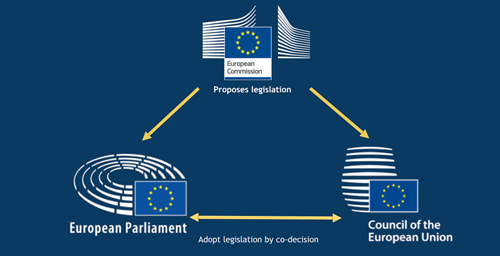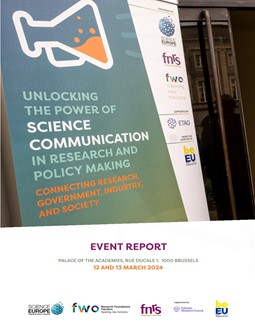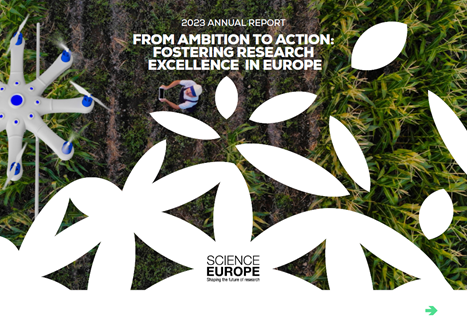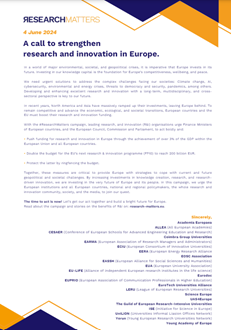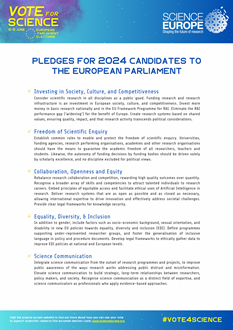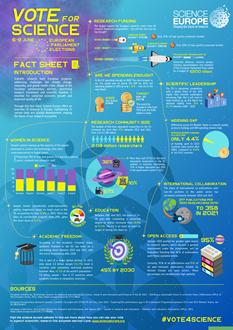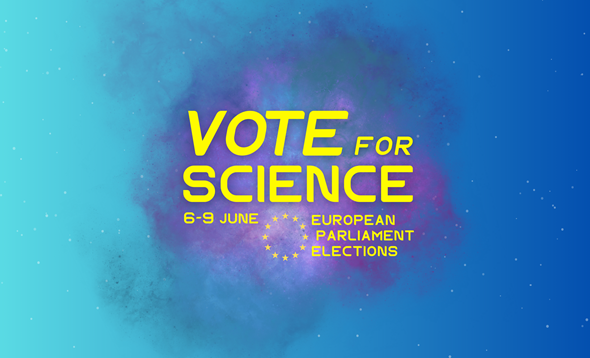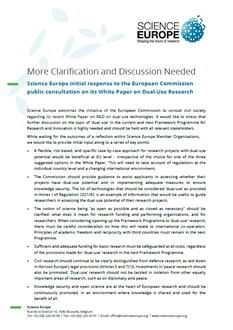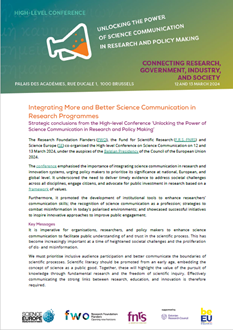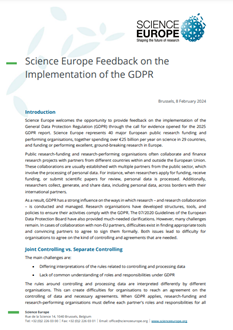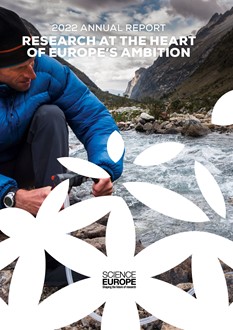What are the current priorities?
The European Research Area focuses on:
- promoting researcher mobility and knowledge flows
- incentivising investments in research and innovation
- improving gender equality and diversity in science
- fostering co-operation between different research stakeholders
Further crucial priorities in the coming years will be to:
- address the consequences of the COVID-19 pandemic
- address other societal challenges, such as climate change
- build a more resilient society
To achieve a well-functioning ERA, coherent policies need to be developed at regional, national, and EU level. European authorities must work closely together with national and pan-European research stakeholders. They must develop forward-looking rules that fit the challenges that the world faces.
What does Science Europe do to achieve these aims?
Science Europe is a trusted partner of the EU Institutions and regularly shares the expertise and experience of its members with them. It does so in particular in areas related to the Green Deal, digital transformation, societal challenges, and COVID-19. It thereby contributes to the development of a legislative framework that is beneficial to research and helps us to respond to both existing and future challenges.


